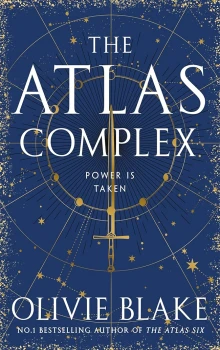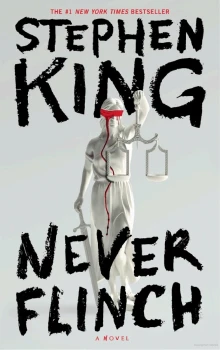6
It was Hai’s turn to close the store for the night. There was usually another crew member to help, but BJ had clocked out early to take her sister to a school play and it was Sony’s turn to prep dinner at his group home, so Hai was alone.
After a brief rush of customers, mostly from the AA meeting at the Episcopal church on Mill Street, the place was empty the rest of the night. At one point the warmth from the heat lamps made his head heavy and he nodded off leaning against the counter. He woke, startled by the silence, and found that the stereo had been turned off. The clock on the wall above the drive-thru window read 9:16 p.m. and he had to shut everything down by 9:30.
He yawned, rubbed his eyes, and was about to look away when he saw someone walking past the drive-thru window. He rushed over and leaned into the night air, looking around. “Hello?” he said quietly. “Can I help you?” Only the crickets, lethargic from autumn’s first chill, chirping weakly in the bushes. All night he had this strange feeling of being watched. But perhaps it was the withdrawals messing with his head. He shut the window and finished the rest of his closing in a daze. He had already brushed down the corn bread ovens, mopped the dining room and stacked the chairs over the tables, scrubbed the toilets, swept away the pubic hair around the porcelain, picked out the half-eaten meat loaf somebody tossed onto the urinal cake, taken out the garbage, careful to hold it by the top to avoid any rigs left over from addicts who used the stalls to shoot up, wiped down grease from the rotisserie, and wrapped the remaining four chickens in tinfoil. He moved about the empty rooms, careful not to look at the drive-thru again. All that was left was to clean the food vats and turn down the counter, but as he clicked off the lamps and heating hoppers, the front door opened.
It was a man in his late fifties wearing a lumpy brown leather jacket. He approached the counter, his face jowled and uneven, like somebody threw two black marbles in a bowl of mashed potatoes.
“We’re actually closed,” Hai said apologetically.
“You’re not locked.” The man glanced down at the cooling wells. “And looks like you still got grub.”
When Hai asked him what he wanted, the man pointed at the creamed spinach without really looking, then the sweet potato pie. When Hai started scraping the dried crusts off the tops, the man stopped him. “Nah, give it to me as is. All of it.”
“You sure?”
He nodded, the scent of booze wafting off him.
Hai filled the four sections of his tray to the brim with the two dishes and pushed it toward him. “It’s on me,” he said. “You’re good.”
“Thanks, bud. Oh,” the man reached into his coat pocket and took out a piece of paper, “you mind if I post this on the corkboard over there?”
The poster was seeking information on a black sedan, and showed a heavily pixelated CCTV image of the car.
“You ever heard of anyone named Rachel Miotti?” the man said.
“She your daughter or something?”
The man reached into his back pocket and flashed his badge.
“Detective Lippman. Hartford County.”
“Oh.” Hai straightened up. “Something happened?”
“You could say that. She’s dead.” He made a vague slicing motion across his throat. “Seven years back now. Dragged out the passenger door of this sedan for almost five miles. Most likely by a john. I wasn’t there that night but had to survey the strip the next morning. I was still on the beat then. It happened right outside here,” he nodded over his shoulder, “and went all the way down Griswold to the dog run at Cook’s Park. That’s where the traces of her on the pavement ended.” He shook his head, the black marbles gleaming on his face. Hai remembered now—the case was a big deal back when he was in middle school, the girl’s mother appearing on TV almost nightly, her eye bags growing darker by the day. For years, Hartford County was either the seventh or eighth highest on the national murder list, and Rachel Miotti’s death was the longest drag murder, by miles, on record.
“That car wash across the street was just an empty lot back then. Spillover parking for those run-down apartments out back. Junkies and working girls, mostly. But nobody deserves to die like that, you get me?” Cold now for years, the case was being reopened. “I’m retired but this one just stuck with me. Besides, it’s something to do other than sit around on lawn chairs and watch the sprinklers in my yard go up and down.” He smiled with only his eyes. “So can you keep a lookout and call us if you see anything?”
“Will do, Officer,” Hai said, touching his cap the way he saw Wayne do.
“Good man. And thanks.” He raised the tray, grabbed a spoon, and started shoveling the lukewarm food in his mouth as he walked out.
Hai watched him lumber toward a beige hatchback at the edge of the strip mall, then pull out. Maybe it was him he saw in the drive-thru. After locking up and shutting the lights, he took one last glance into the store, just in case, but it was all dark save for the exit sign glowing red above the back door. He shuddered, zipped up his jacket, and headed home.
The night was pitch and starless. All around him the sound of leaves, losing their hold on the branches, rustled unseen from gusts blown off the river. The sidewalk dropped off just as the sodium lamps stopped and the darkness spread out like a sea. As he crossed under an overpass, something flashed at the top of the concrete embankment. A man, wrapped in a sleeping bag, was texting on a flip phone. His face, lit blue and blasted, all teeth and beard, was so absorbed at whoever was on the other side, he didn’t notice Hai’s footsteps. As Hai made it down the road, the man started to laugh, and the voice, amplified by concrete, bounced across the night, making it seem like the valley itself was laughing behind him.
The house was dark and dead silent when he came in, Grazina long asleep. He ran his hand along the walls and by the bridge lights splintering through the house, made his way up the stairs and into his room. He hung up his jacket along with the cap and apron, peeled off his shirt rank with grease and Clorox, and removed his Nike military boots, the ones his mother bought him from the mall before he went off to college the first time, costing her half a week’s pay.
He lay waiting for the dark to be truer than it was. Ever since he was little, it bothered him that you can never recall the exact moment you fall asleep, as though someone turns you off just before your mind fades, as if they knew you wouldn’t choose it, that you’d stay awake if you saw sleep coming like the shadow of some colossal wave falling over you.
He wasn’t sure how long he was out, but the first thing he noticed when he woke were the explosions. They sounded like thunder, but faster, tearing open the air outside. He thought of Grazina and realized, in his exhaustion, that he’d forgotten to check her pill tray to see if she’d taken her nine p.m. dose. He leapt from bed and looked out the window. There, across the river, on the far shore, were clusters of fireworks blasting though the canopies. Excited human voices broke off and flitted across the water, followed by barrages of Roman candles searing through the black, shot from a silo on the abandoned mill. Teenagers.
Panicked, Hai headed down the hallway. But when he got to the landing, he saw her standing there like a mannequin in her nightgown and nearly screamed. She was staring straight at him, hair disheveled and holding a spatula like she was about to swat a fly. The coyotes in the pines were going crazy as the fireworks went on, and their voices fell into the house as horrific shrieks.
He grabbed Grazina’s hand and gently shook her. “Whoa, whoa. You’re alright. Come on now. You’re alright.” She yanked away and shuffled, faster than he expected, into his room. She knelt on the carpet and started crying into the collar of her nightgown. When he touched her, she jolted and spurted something in Lithuanian.
“English, okay?” he tried. “Or else I can’t hear you, remember? We’re in America. No war, Grazina. No more war, I promise.”
This time he was ready. He wrapped his arms around her, placed his hand behind her head so she wouldn’t jerk about, and began to sing his grandmother’s lullaby again, his voice raspier, thinned from a week of shouting orders down the line, the notes crackled as if cut with static.
When this failed, he switched to “Silent Night,” but suddenly couldn’t remember the words beyond the title, so he tried humming it. But this time she was off to nowhere-land for good, her eyes rolling wildly, face and neck wet with tears and sweat. “My brother, Kristof.” She lunged forward, shouting at the desk.
With his arms seat-belted around her waist, a wild thought came to him. If she was that deep in the past, maybe he could reach her by going back there himself, something he did once or twice with his grandmother when she had one of her schizophrenic breaks. With scenes from Slaughterhouse-Five fresh in his mind, the soldiers, the ruined German landscape, he took a breath and made his voice deep and manly, rooting it in his gut. “Ma’am,” he said, pausing to examine its authenticity. “Ma’am, don’t you worry now. We’re gonna go get your brother.” He pointed at her chest. “But you gotta listen to me, alright?” He searched his mind, still foggy with sleep, for a military name and ended up blurting out the first one that came. “This is Sergeant Pepper from the United States Army, Second Division.” He would learn only later that the Sgt. Pepper’s Pizza in town had been named after a Beatles album. Having never listened to the Beatles other than a few songs that floated from the radio through the years, Hai had assumed it was the pizza shop’s original name, short for Sgt. Pepperoni.
Grazina’s head jerked up and turned toward this new, older voice, alert.
“Ma’am, we’re under heavy artillery fire and need to evacuate this village now.” He spoke quickly, his tone determined and grated, Bruce Willis–like.
She nodded vigorously, eyes clear. “Yes, yes of course, Sergeant.”
“Your family, including your brother, is safe. They have already been moved to evacuation zone C, a camp for displaced persons outside of—” He knew nothing, he realized, of World War Two, of Europe, the world. “Outside of Gettysburg.” Sony had rambled on about the Civil War during their shifts at HomeMarket, most of which Hai was able to tune out. But at least it was a battle. It was a war, something.
“Gettysburg?” Grazina’s eyes flickered, trying to locate the village in her mental map. She nodded, her face pinched. “German, yes? Are we still in Germany?”
“I’m afraid so, ma’am.” He gritted his teeth and gathered himself. “It’s a small village. Occupied to store supplies for our next offensive on Hitler’s front.”
“Hitler!” she cut him off, then considered him with one eye, her way, he would learn, of measuring character. “Don’t forget Stalin, Mr. Pepper,” she said coldly. “There is more than one devil these days.”
“Of course.”
“Now listen to me, Sergeant.” She drew closer. “You must send wire to my father. You say: his daughter, Grazina Vitkus, is healthy, not scared, and that her faith in God is strong. Tell him: wait for me in London. That was the plan before we left his bakery—to go to England, then find boat for America.”
Flush with this new mission, she pulled his arm off her shoulder and staggered to her feet, nearly falling until he placed his hand on her back and steadied her. She faced him, her chin high. “I’m going now, Sergeant Pepper.” She straightened the waistband on her underwear, smoothed out her nightgown as though it were a young woman’s skirt, and gave him a military salute. “God bless you. I go now to Gettysburg.”
Thrown by her sudden, sharp vitality, he clasped his hands together under his chin and pondered his next move. “Uh. You can’t.”
She was glancing around the room, and he wondered if she could actually see a road, or even a dirt path threading through a lush German countryside.
“We have to stay here, ma’am.”
She ignored him. “The roads are clear. Farmer’s roads. Dusty, yes, but good enough to go by foot. If we follow the tree line, the planes won’t see. Now, which way, Sergeant Pepper?” She tilted her head back, awaiting his answer.
“You see this?” he finally whispered, as he made his finger into a hook. “This is a fishhook. It’s how our defensive line is currently laid out across that ridge over there. Can you see the faint light from the officers’ quarters between that bunch of trees?”
Grazina’s eyes followed his finger down the unlit hall. “I see it, Sergeant,” she nodded.
“Good.” He would simply replace the Army of the Potomac’s position with World War Two Americans, he decided. From the dregs of his mind, he recalled Sony talking about Union forces deploying a fishhook formation to successfully defend against Robert E. Lee at Gettysburg. “The fishhook, or S line,” he told Grazina, “will prevent against flanking maneuvers from the Germans. Which means they can’t surprise us from the side.”
“I see it,” she said. “The Americans, your men, got good brains. If the Germans come here,” she pointed to the hook’s inner curve on her palm, “the top of the hook will surround them from behind and they’ll be finished.” She looked at him, seemingly surprised that such military strategy would be so accessible to her, a teenager trapped in time. “War is a game. Just like Price Is Right,” she nodded.
“Just like Price Is Right.”
But how far would he play this out? To the bathroom? The closet in the foyer downstairs? The basement? Down the street? Where in the house—or rather, where in the past, her past—was Gettysburg?
She chopped the air in front of him. “But your men must also stop the Reds from advancing on the East! My mother said Vilnius has already fallen. That letter came four days ago but was dated all the way back in July!” Spit landed cool across his face.
“Okay…Just give me a sec. I mean—” He cleared his throat. “We must be patient and assess our options, ma’am.” He put his hands on his hips and puffed out his chest but knew his face betrayed him.
She looked away into what must’ve been a smoldering landscape from 1944, the year, he would learn later, that she fled her home village of Bubiai when the Soviets advanced the final time. “Please, just call me Grazina.”
“Okay, look, here’s what we’ll do. We’ll take my jeep.” Images of World War Two films he had seen on TV flashed before him: Patton, Saving Private Ryan, The Great Escape, etc.
Grazina scratched her chin. “So we’re driving to Gettysburg.”
“My jeep’s right over there.” He pointed across the hallway, toward the bathroom. The claw-foot tub should do.
“And what about air raids? The roads will leave us exposed.”
“It’s getting dark. I can drive with the lights off. We’ll go slow. There’s a moon.” He peered at the ceiling, where an old water stain hung above them.
“I like your guts, Sergeant Pepper.” But then she paused, stooped her shoulders, and examined him with a frown: his white T-shirt, still torn at the neck, his red plaid boxers, pale legs and knobby knees sticking out. He was caught—no uniform. The jig was up.
“You’re too skinny,” she said, shaking her head. “How are you going to fight with no meat on the bones?” She bent over and grabbed something from the box on the floor. When she lifted her fist to his face, he saw a pack of strawberry Pop-Tarts clutched in her hand.
“For the road.”
“Good idea.” He took her arm and led her, shuffling behind him, to the bathroom.
The fireworks kept on, their fiery blooms now muted through the frosted bathroom window. Grazina still flinched each time a big one went off. He pulled back the shower curtain printed with tiny yellow owls. There was a long crack of rust that ran the length of the old tub. He thought of removing her Shower-Aide, the white plastic booster chair, but, since it resembled the seat inside a truck, decided to leave it.
“Quick,” he turned to her, “get in. We gotta move fast. Daybreak is in a few hours.”
She clutched his arm and stepped inside, her free hand throbbing from the effort. Her other hand was still clutching the Pop-Tarts. He wiped away a streak of water in the tub’s bottom, then directed her to sit down with her legs extended under the plastic chair. He climbed inside the truck and sat on the Shower-Aide, his back to her. “Alright. You ready?” He adjusted an invisible rearview and fastened his seat belt. All those hours playing make-believe with his grandmother, building forts while her own brain was misfiring—though in another way—were paying off.
“You worry about yourself, skinny Pepper. This is the countryside.” She gestured at a hand towel hanging on the wall a few feet away. “I’m not afraid to die here.”
Hai pretended to start the engine. “Okay, we’re going now. We’re off!” He rattled the seat a bit and a few drops of water fell on his toes. “Can you feel it? It’s bumpy.”
“Of course. These roads have been ruined for years.” She was shouting as though there were a diesel engine and rocks kicking at the jeep’s carriage. “Nothing but dirt and mud since the czars. Peasant’s roads. Honest roads.”
It must’ve been nearly one in the morning. They rode on for a while without speaking, the countryside an indigo swath around them. A car drove past outside the house, the muffled yet distinct lyrics of “I Gotta Feeling” by the Black Eyed Peas seeping through its speakers. He looked ahead at the frosted window, which no longer flashed with fireworks, and listened to Grazina’s slowing breaths.
There was a sharp clank. He turned around. Her amber bracelet knocked against the porcelain.
“It’s a clear night. And there’s a lake over there, Sergeant,” she noted without interest. “It’s dark but you can see it. Like a piece of the sky fell down.” She looked up, scanning the ceiling as he drove on.
“I used to swim in Lake Rėkyva as a girl. With my brother.” Another clank. “But that’s all over. The water was bombed. The fish floated up, all fried and orange, rotting. Horrible. Terrible.”
“They bombed a lake?”
“What, you think I’m making this up? The Nazis would bomb anything, even water.” Clank.
This stirred something in him, and he realized now how odd it was that despite her derangement of senses, she’d managed to enter such a clear, lucid state of linearity as the one they were in now. But then again, he knew nothing of dementia, what wide, unbroken vistas it might hold.
He turned the invisible wheel in front of him, as though brushing something away. “Hey, why don’t you take a nap?” This was his chance to close it up, to get her back to bed and finally hit the restart button. “I’ll wake you when we’re close.”
“You’re a soldier.” She pulled herself upright. “And you want me to sleep? Even dogs know not to sleep during an invasion.”
There was a crinkle of foil. Then a rough bark started scraping his mouth. “Eat,” she said, jabbing the Pop-Tart at the side of his cheek. Cool bits of filling rubbed off on his skin.
“Lower,” he said.
“What?”
“Lower! Yeah, mmph mmph.” He bit off a piece, tilting his head back to keep it in.
“We can’t have you hungry at the wheel. It’s a long way, I can tell.”
Grazina took a bite as well, her lips smacking loudly as she eased back in the tub. He shifted into third gear and the truck backfired before speeding up, easing through the liquid night ahead. He knew they weren’t moving but could feel them getting smaller and smaller in the landscape as if he were outside himself, watching from the distance of years. He pressed his back against the seat and closed his eyes. He thought of his mom, his bà ngoại, Sony, Aunt Kim, the people he knew in town, all of them far in the future while he was still in 1944 with Grazina, three years away from when his grandmother would be born in Gò Công, Vietnam. So he started talking. To nobody. “Good night,” he said. “Good night, everyone I love you. Thanks for coming. How many scoops of the mashed potatoes you want, ma’am? Careful, tray’s hot. No, sir, our mac and cheese isn’t gluten free.” His mumbling sounded hollow off the tiles. And he could no longer tell whether he was talking or just thinking or passed out. But he kept on as fields of rapeseed unfurled under the starlight to his left and the moon hovered over his thoughts.
It wasn’t until Grazina groaned that he saw the tub again. So caught up imagining the road ahead, he didn’t notice the window in front of him had started to pinken with dawn. He turned around and found her asleep, her palms open at each side. A half-eaten Pop-Tart rested in the dip of her chest.
Quietly, he stepped out and went into her room, grabbed a pillow, along with her favorite green-and-white quilt. He took the pastry off her chest and placed it gently, so it wouldn’t splash, into the toilet.
Grazina’s head had slumped to one side, so he propped it up with a pillow, then draped the blanket over her chest and tucked it in along her length, covering her arms against the cold porcelain. That’s when he clocked the piece of wood sticking out from behind the shower curtain.
The edge of a picture frame.
It hung on the wall above the tub but was hidden this whole time by the opaque curtain, which he pulled back. The black-and-white photo was set behind glass and was surprisingly large, about the size of a doormat. In it, a man and a woman, along with a toddler girl, are smiling. They’re all dressed up for a party or some formal function. The monochrome hues and their style of dress indicate the fifties or sixties. The daughter is sitting in the man’s lap. The woman’s hair is fair and done up in a beehive. She is laughing, mouth open, all teeth and shut eyes in a room where voices must’ve been punctuated by clinking glasses. She is holding up a card with both hands that reads $300. A lottery? A raffle? It must be why she’s laughing, why she looks so triumphant, as if all the world would cost no more than what she held in her hands.
He stood watching Grazina sleep under the photo of herself half a century ago, her face, the only part of her that wasn’t covered, grey and compressed and smeared with strawberry jam. What did he know about her illness, after all, other than that four of the thirteen pills she took each day were supposed to “subdue” it, like some sort of criminal in her head? How could he have known that her brain was actually collapsing slowly inside her skull, how this made little holes, which then made new neural connections and scrambled old ones? It must be like water, he thought, as the morning rose up around them. It must be like the lake she had talked about. Diving under the surface until everything was muted and gauzed but still there. He listened to her wheezy breaths, and imagined a tiny fire scratching inside her. A little torch that forgot it was not supposed to burn underwater. Because to remember is to fill the present with the past, which meant that the cost of remembering anything, anything at all, is life itself. We murder ourselves, he thought, by remembering. The idea made him sick. And without knowledge of his own legs moving beneath him, he crossed the hall to his bedroom, fished the contact lens case from his jacket pocket, and, having been sober for forty-seven days, tossed the Perc and codeines back in one gulp, then returned to where Grazina lay slumped in the jeep.
“Good night,” he said, but then saw her lips moving. “What’s that?” He crouched down.
“I said…” She swallowed and blinked. “We made it.”
“We made it?” he asked.
“To Gettysburg.”
“How do you know?”
“Because I can see you. If I can see you, then I’m still alive,” Grazina slurred, her voice thick with sleep. “Do you see me, Sergeant Pepper?”
A train whistle was blowing miles down the track. “Yeah,” he answered. “You’re right in front of me, right here in Gettysburg.”
They watched each other in the weak light for what seemed like a long time.
Then she said, “So, have you killed anyone yet, Sergeant?”
Hai said nothing.
“Every soldier gets asked, I know. But a woman has to know.” She was so still only her mouth seemed to move. “But really. Have you killed? There’s no shame in it. Not in these times.”
The pills were starting to take effect, vignetting most of his vision. He knew from experience that by the time they made it to his limbic system, all that would remain of the world would be a pinhole of light at the center of his consciousness, like a makeshift camera, making it dark enough for him to retreat into a hole deep inside him, curl in a fetal position, and rest. The fireworks were long gone, but he could smell the sulfur drifting through the cracked window. He looked down at his hands, as though the answer could be found there. He wanted to tell her that the body was just this stupid little shovel we use to dig through the hours only to end up surrounded by more empty space than we know what to do with. But the drugs were dissolving in him as hers were dissolving in her, and in this pharmaceutical stupor, all he could hear was the rush of static filling the room. It grew louder and louder, as if the whole house were one big radio left on a bad channel and he was standing inside it, waiting for a reason. No, he said to himself. No, no, no—and he covered his ears to keep it all out. Though it was only the rain.





